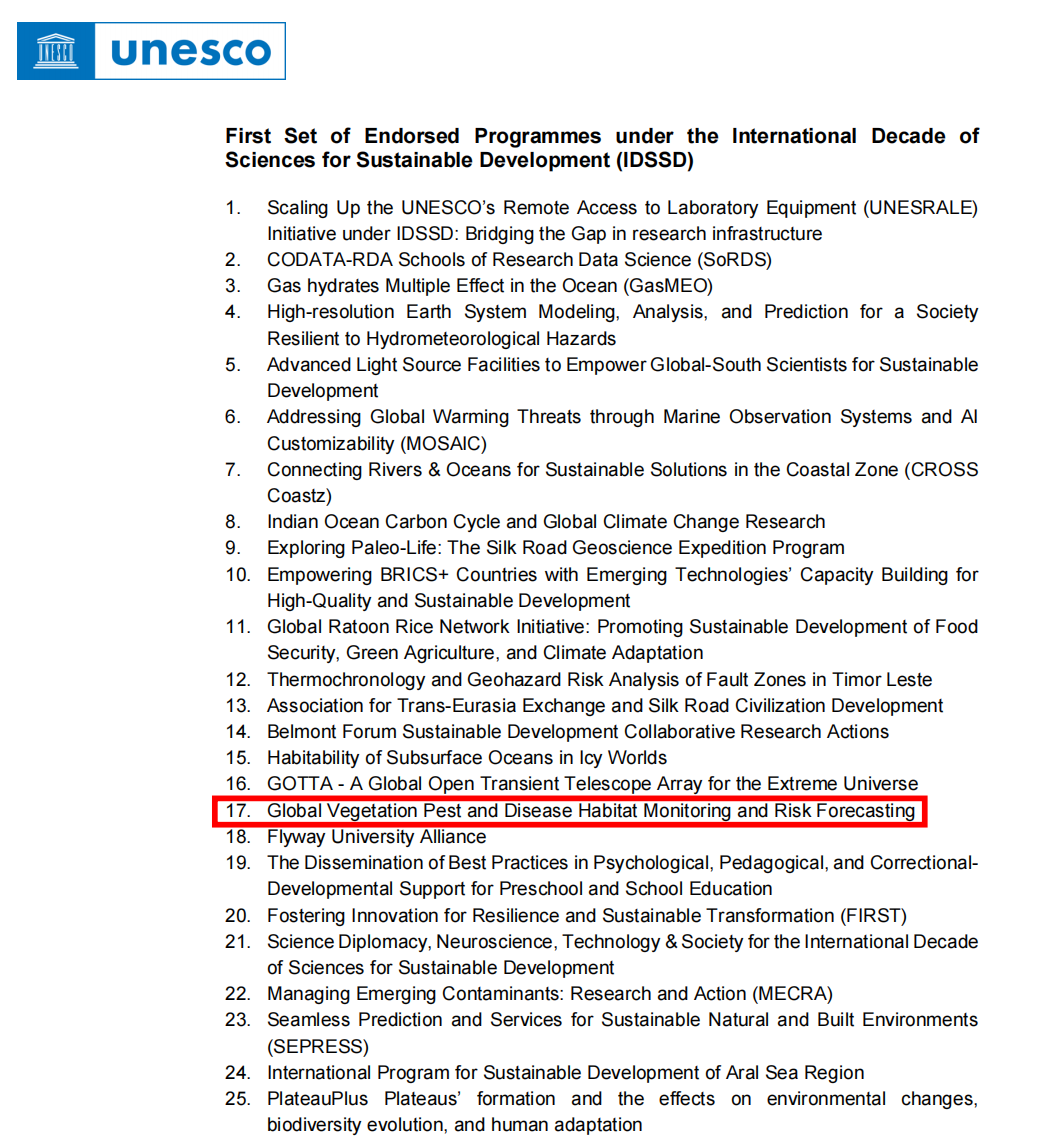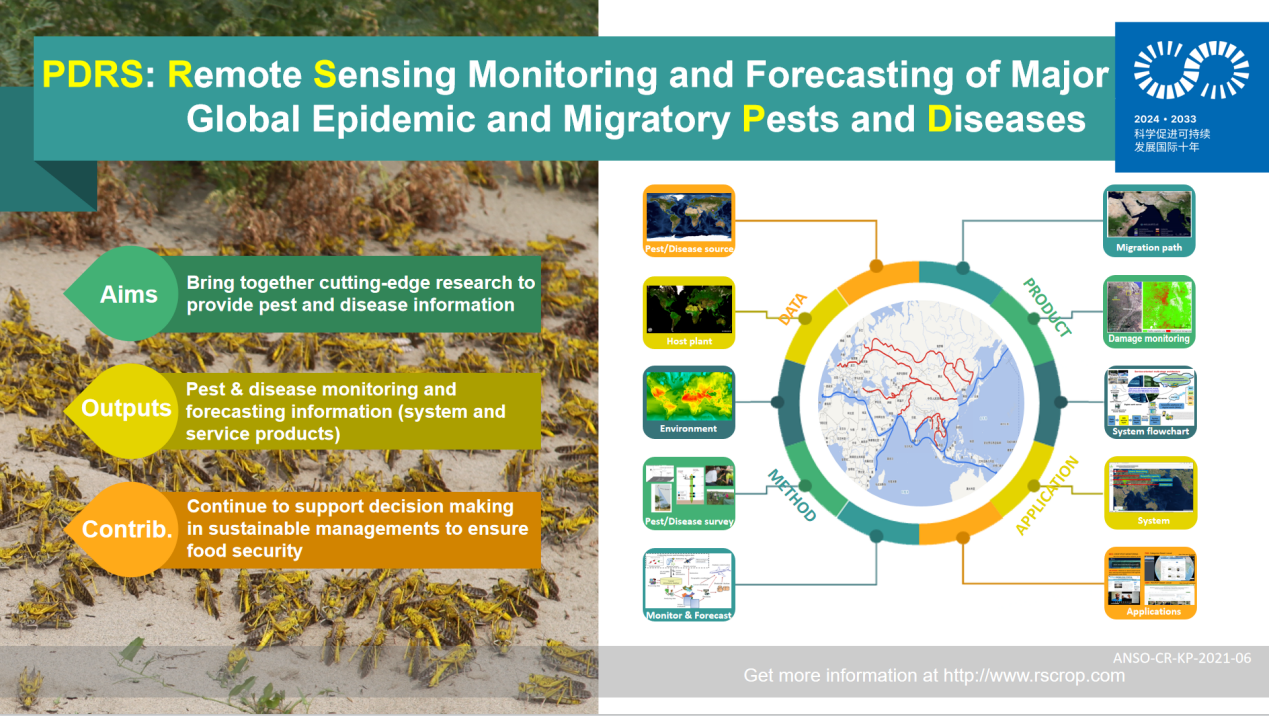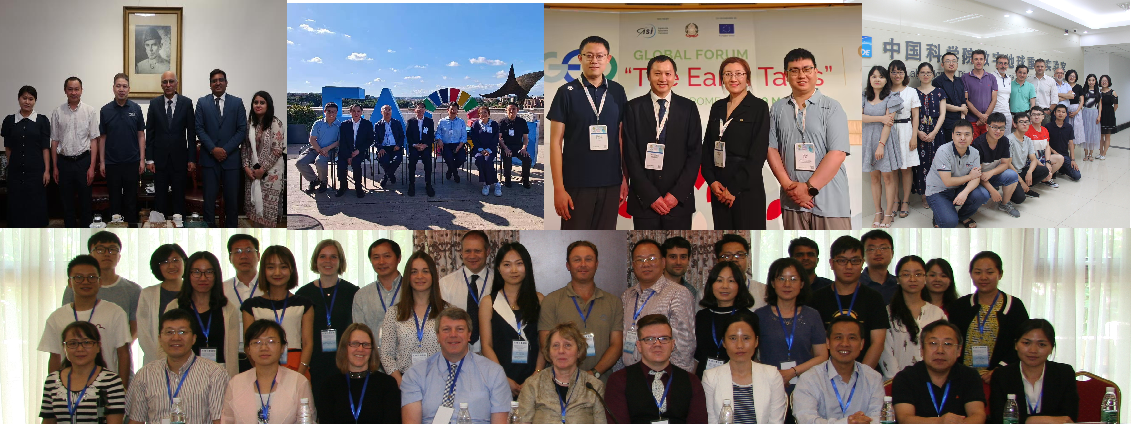
“Global Vegetation Pest and Disease Habitat Monitoring and Risk Forecasting” Program endorsed in the First Set IDSSD Programmes
Global Vegetation Pest and Disease Habitat Monitoring and Risk Forecasting
16 05, 2025
Recently, the “Global Vegetation Pest and Disease Habitat Monitoring and Risk Forecasting” Program led by the Aerospace Information Research Institute, Chinese Academy of Sciences (AIR, CAS) has been selected as the United Nations’ International Decade of Sciences for Sustainable Development (2024-2033) (IDSSD) Programme. Only 25 projects worldwide were formally endorsed by the United Nations Educational, Scientific and Cultural Organization (UNESCO) in the first round of applications, and the results were announced at the Multi-stakeholder Forum on Science, Technology and Innovation for the SDGs (STI Forum) on May 7, 2025. ANSO-funded research project, jointly implemented by AIR, CABI, and PAS has given birth to the idea of the Program and facilitated its widespread application globally.
FIG1 Introduction of the “Global Vegetation Pest and Disease Habitat Monitoring and Risk Forecasting” Program
FIG2 Project Team of the “Global Vegetation Pest and Disease Habitat Monitoring and Risk Forecasting” Program
The International Program on Pests and Diseases, led by Associate Researcher Yingying Dong of AIR, focuses on the key issues of global vegetation pests and diseases monitoring and early warning and ecosystem sustainable development, and aims to promote the innovation and development of remote sensing monitoring and early warning technologies to support scientific and efficient prevention and control applications. The program aims to bring together big data, coupled with remote sensing mechanism, bio-ecological mechanism and AI technologies, to innovate and develop remote sensing monitoring and early warning mechanism and methodology for vegetation pests and diseases, to build a full-chain technology system of remote sensing monitoring, prediction and loss assessment covering major pests and diseases around the world, and to build an intelligent system to promote further product releases and open sharing, to support the decision-making of multinational governmental departments, international organizations, and industrial institutions, and to promote sustainable development. The selection of this program is of milestone significance, marking that the international team of the project under the support of ANSO has taken another key and solid step in deepening the collaboration in science and technology innovation and promoting sustainable development, and promoting the high-quality development of international scientific and technological cooperation with innovative practices.

FIG3 The First Set of Endorsed Programmes under the UN IDSSD



